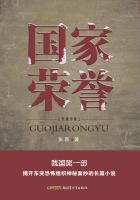THE TURNOVER OF CAPITAL
THEORIES OF FIXED AND CIRCULATING CAPITAL.
RICARDORicardo introduces the distinction between fixed and circulating capital merely for the purpose of illustrating the exceptions to the rule of value, namely, cases where the rate of wages affects prices. The discussion of this point is reserved for Book III. [Karl Marx, Capital , Vol. III, Ch. XI, pp. 196-200. -- Ed .]
But the original lack of clarity is apparent at the outset in the following immaterial juxtaposition: "This difference in the degree of durability of fixed capital, and this variety in the proportions in which the two sorts of capital may be combined." [25]
And if we ask him which two sorts of capital he is referring to, we are told: "The proportions, too, in which the capital that is to support labour, and the capital that is invested in tools, machinery, and buildings, may be variously combined." [26] In other words, fixed capital equals instruments of labour and circulating capital equals capital laid out in labour. "Capital that is to support labour" is a senseless term culled from Adam Smith. On the one hand the circulating capital is here lumped together with the variable capital, i.e., with that part of productive capital which is laid out in labour. But on the other hand doubly erroneous definitions arise for the reason that the antithesis is not derived from the process of self-expansion of value -- constant and variable capital -- but from the process of circulation (Adam Smith's old confusion).
First: The differences in the degree of durability of fixed capital and the difference arising from capital being composed of constant and variable capital are conceived as being of equal significance. But the last-named difference determines the difference in the production of surplus-value;the first named on the other hand, so far as the process of self-expansion is concerned, refers only to the manner in which a particular value is transferred from a means of production to the product; so far as the process of circulation is concerned, this difference refers only to the period of the renewal of the expended capital, or, from another point of view, to the time for which it has been advanced. If instead of seeing through the internal machinery of the capitalist process of production one considers merely the accomplished phenomena, then these distinctions actually coincide.
In the distribution of the social surplus-value among the various capitals invested in different branches of industry, the differences in the different periods of time for which capital is advanced (for instance the various degrees of durability of fixed capital) and the different organic compositions of capital (and therefore also the different circulations of constant and variable capital) contribute equally toward an equalisation of the general rate of profit and the conversion of values into prices of production.
Secondly: From the point of view of the process of circulation, we have on one side the instruments of labour -- fixed capital, on the other the material of labour and wages -- circulating capital. But from the point of view of the process of labour and self-expansion, we have on the one side means of production (instruments of labour and material of labour) -- constant capital; on the other, labour-power -- variable capital. It is wholly immaterial for the organic composition of capital (Buch I, Kap. XXIII, 2, p. 647) [English edition, Ch. XXV, 2, pp. 622-23.
-- Ed .] whether a specified quantity of value of constant capital consists of many instruments of labour and little material of labour or of much material of labour and few instruments of labour, while everything depends on the ratio of the capital laid out in means of production to that laid out in labour-power. Vice versa: from the point of view of the process of circulation, of the distinction between fixed and circulating capital, it is just as immaterial in what proportions a particular quantity of value circulating capital divides into material of labour and wages.
From one of these points of view the material of labour is classed in the same category with the instruments of labour, as opposed to the capital-value laid out in labour-power; from the other view-point the part of capital laid out in labour-power ranges with that laid out in material of labour, as opposed to that laid out in instruments of labour.
For this reason the part of the capital-value laid out in material of labour (raw and auxiliary materials) does not appear on either side in Ricardo. It disappears entirely; for it will not do to class it with fixed capital, because its mode of circulation coincides entirely with that of the part of capital laid out in labour-power. And on the other hand it should not be placed alongside circulating capital, because in that event the identification of the antithesis of fixed and circulating capital with that of constant and variable capital, which had been handed down by Adam Smith and is tacitly retained, would abolish itself. Ricardo has too much logical instinct not to feel this, and for this reason that part of capital vanishes entirely from his sight.
It is to be noted at this point that the capitalist, to use the jargon of Political Economy, advances the capital laid out in wages for various periods of time, according to whether he pays these wages weekly, monthly, or quarterly. But as a matter of fact the reverse takes place.














